General Information
Accutane was first approved for medical use in 1982. It is primarily used to treat severe cases of acne. This drug was first made for patients with cystic acne, but is also used to treat rosacea and perioral dermatitis. This is because Accutane is made from a metabolite of vitamin A, which reduces the production of sebum and has anti-inflammatory properties.
It has also seen use as a treatment for preventing certain skin cancers such as basal cell carcinoma and squamous cell carcinoma. The medication was originally manufactured by Roche, but was later acquired by Sanofi-Aventis in 2009. It is a generic drug and can be purchased from pharmacies without a prescription. Accutane has been associated with the development of psychiatric symptoms such as depression and psychosis (in rare cases), though it is thought that these psychiatric symptoms are the result of increased awareness and reflection due to the use of Accutane.
Accutane was first registered in 1981 by Hoffmann-La Roche under the brand name Roaccutan. In 1989, Roche lost a lawsuit brought by its Accutane distributor because Accutane was not patented at the time, which allowed generic companies to produce generic forms. Roche then rebranded Accutane as Roaccutan in 1990 and later changed the name to isotretinoin again in 2006.Accutane is indicated for the treatment of severe, recalcitrant nodular acne vulgaris, including cystic acne if accompanied by scarring or other significant psychological morbidity.
Accutane sometimes sees use by PED users to counteract the acne caused by high levels of DHT in the body, however, this is only in severe cases as the acne is usually manageable by staying on top of hormone levels. This is not to say that, in general, it is not a good idea to use Accutane, as the drug has other beneficial uses in addition to helping acne. Other uses of Accutane include treating rosacea and sebaceous hyperplasia (benign growths on the skin).
Accutane works by reducing the size of oil glands in the body, this reduction will typically be by 30-60%. Due to the smaller oil glands, the body will produce less oil meaning there is also less bacteria present on the skin to cause acne, this lack of oil also helps to prevent pores from getting blocked. The medication will usually take effect in a few days and can last up to six months.
The most common side effects of the medication are dry skin, redness, peeling, and burning due to the skin being exposed to the sun more often. It is also possible for patients to experience birth defects if pregnant when using Accutane. Patients who use Accutane should avoid contact with people who have open cuts or wounds, this includes avoiding contact with anyone who has recently received a tattoo or any sort of piercing. It is also important to reduce the amount of alcohol you consume while taking the medication, it is also a good idea to avoid tanning beds as well.
To increase absorption rates, Accutane should be taken with food, preferably with a high fat content, foods with fats such as nuts and avocados should be taken before or during the dose. This is because Accutane can be broken down by the body and converted into fat, so taking fats with the drug will ensure that it stays in the body longer. To avoid dry mouth, drink plenty of fluids during treatment with Accutane.
Accutane Cycle Information
Accutane is normally used for between 15-20 weeks when prescribed by a doctor to treat severe acne. The dosage for Accutane will depend on the needs of the user, however it will normally range from 0.5 to 1 mg per kilogram of bodyweight. According to their demands, a person weighing 110 lbs (50 kg) would take between 25 and 50 mg daily. This means that a person taking the maximum dosage of 50 mg per day would be prescribed a total of 1000 – 2000 mg per month. A person with a higher bodyweight would need to take more Accutane each day in order to see better results. The number of days the drug is used will also vary on the needs and desires of the patient, but it should be noted that this is usually around the 20 week mark. The FDA approved Accutane in 1982, and it has been used ever since to treat severe acne.
It is best to take Accutane while you are off cycle if you use it to treat acne brought on by PED usage because doing so will increase the stress the PEDs put on your body. By taking the Accutane while off cycle, you will minimize the risk of permanent side effects that can result from prolonged exposure to PEDs. Side effects of Accutane are very similar to those caused by PEDs, including extreme dryness and peeling of the skin and decreased bone mineral density. Skin problems may persist after stopping treatment with Accutane, and it may take several months for skin to return to pre-therapy levels.
Bodybuilders who use performance-enhancing drugs, such as anabolic steroids or human growth hormone, should not take Accutane unless they are trying to gain muscle mass and minimize side effects of the PEDs. This medication is for short term use only. This medication is not meant for long term use. It does not treat acne caused by other factors such as pregnancy or a hormone imbalance. It is not meant to reduce scarring or prevent acne in patients with a history of keloid formation. It is not known if this medication can cause birth defects. If pregnant, please consult your doctor. It is also not known if this drug can harm an unborn baby. If you are pregnant and thinking about taking Accutane, please consult your doctor first.

Expected Results of Accutane Use
Users of Accutane should be prepared for a time when their acne worsens; this is referred to as the purging period and is brought on by the medication’s effect on the glands, which causes an outbreak. The majority of users will normally experience it for 2-4 weeks, which is typical with the majority of skin care drugs. The purge will typically last for 4-8 weeks, though it can sometimes last as long as 12 weeks. Most people who have taken Accutane only experience this purging symptom every other time they take the drug. But some may experience it every time they use the drug while others may not experience a purge at all with their first few doses.
The effectiveness of Accutane may be reduced if the medication is not taken exactly as prescribed. When taking Accutane, people with a serious kidney disorder should only do so under close supervision of their doctor. People with a certain kind of epilepsy called Lennox-Gastaut syndrome should not use the drug.
Come the end of treatment, around 95% of Accutane users will see dramatic improvements to their skin with most of them seeing permanent clear up of scars, acne, and other skin problems. It is not totally clear why some people will not have the same or similar improvements as others, but it is likely due to how deeply into the skin these effects are felt.A major side effect of Accutane treatment is dryness in the lips and mouth. This can be avoided by using a lip moisturizer with an SPF of 15 before using this drug and after.
Bodybuilders can expect to see improved muscle development, strengthen their bones and reduce body fat. They should also be aware that increased lean muscle mass can lead to muscle cramps, back pain, and difficulty sleeping. In the United States, it is illegal for healthcare providers or pharmacists to provide a prescription for Accutane for under-18s.
Potential Side Effects of Using Accutane
Some users report a negative impact on their mood from Accutane since this drug contains certain ingredients that can upset the mood. Some individuals experience a negative impact on their dreams while taking Accutane. Some users experience dry skin, although this is not common among all users. Many users will suffer from dry lips as well as dry and/or fragile skin. Users who experience dry skin may want to use a moisturizing cream like Aquaphor or Cetaphil. This can help alleviate the dryness and prevent further dryness from taking place.
There is also a risk of muscle soreness which can be worse with strenuous physical activity. Accutane is a powerful, systemic retinoid drug that has been shown to be effective in the treatment of severe acne. The drug is typically prescribed for individuals who have not responded to other treatments, but it can also be prescribed for moderate and mild cases of acne. Accutane’s side effects are generally related to its powerful nature. Side effects of Accutane include dry skin, dry mouth, nosebleeds, drowsiness, dizziness, headache and stomach pain. More serious side effects can be more serious or even life-threatening. The most common side effect is called exfoliative dermatitis which is a very mild form of skin rash characterized by red ness, peeling, or blistering of the skin.
Regular headaches are also a potential risk from Accutane .The most common side effects of isotretinoin are irritation, dryness, and skin discoloration. It is usually recommended that patients use a moisturizer to avoid these side effects. There also may be a greater risk of sunburn after starting treatment with isotretinoin.
Other side effects include burning, numbness and tingling sensations in the skin and muscle weakness. Erythema nodosum is a skin condition that can affect people on Accutane. It is characterized by small red bumps with fluid-filled blisters on the back of the lower leg that typically heal without scarring. More serious side effects may include ulcerative colitis, a type of inflammatory bowel disease with symptoms including diarrhea, abdominal pain and bloody stool; severe liver injury, which includes dark urine, fatigue and yellowing of the skin and whites of the eyes; severe birth defects including heart problems or problems with growth or development; increased risk for depression; and in some cases, it can cause a person to have seizures. A person should also be aware of the risk for skin cancer with Accutane use as well.
Most of these side effects will come down to the dose the user is taking, providing this is under control, most side effects should be avoidable. This cannot be said for the following. Some side effects will be unavoidable. The best course to take is to limit these to the minimum and only use if absolutely necessary. This is for headaches. If you are experiencing a headache or migraine, it is best not to use MDMA at all. This can be avoided with proper diet and hydration, as well as avoiding substances that may cause headaches like Tylenol or Ibuprofen. If you are experiencing a headache or migraine, it is best not to use MDMA at all. This can be avoided with proper diet and hydration, as well as avoiding substances that may cause headaches like Tylenol or Ibuprofen.
The proper way to use Accutane in Bodybuilding
If you are a bodybuilder and Accutane is a on the list of drugs that you are going to use, then it is imperative that you know exactly how to use this drug. There are certain things you should keep in mind in order to make sure that you get the most out of Accutane. The first thing you should know is that you need to be sure that you are using a reliable source for the drug. There are many sources for the drug and some of them might not have the best quality.
The second thing is that you need to be sure that your doctor will give you a prescription for this drug and not just take your money in advance. You want to make sure that you get a prescription because that means that the doctor has prescribed this drug to you.
The third thing is that you need to be sure you are keeping track of your progress. This can be an important part of getting the most out of this drug, as it is in order to make sure that your body stays in good condition and doesn’t suffer from side effects. If you are unsure of whether or not you should use Accutane, it will be important to work with a doctor and have them prescribe it. It is best to get the prescription even if its only for a couple weeks, because as soon as your doctor says that this drug is no longer beneficial for you they will stop prescribing it. There are many benefits of using Accutane, and a lot of people have seen significant changes in their skin after taking it. However, if you do not continue to use this drug as prescribed you will see that the benefits have been lost and what you have is doing more harm than good.
The proper way to use Accutane can be done by following the following steps. To start, the first thing you need to do is learn the proper dosage for yourself. This can be done by consulting your doctor or pharmacist. Next, take the correct dosage of Accutane as directed by your doctor. A typical dosage is 20mg/day for eight weeks. However, you may be prescribed a higher or lower dose on your own case depending on the severity of acne and other contributing factors. After taking the correct dosage of Accutane, follow it up with a maintenance plan, which can last up to 12 weeks. After the 12-week mark, it is advisable that you consider discontinuing the use of Accutane and choosing a different treatment method. Finally, take note of any potential side effects you have experienced when taking Accutane.
Regardless of how you choose to use Accutane, it is highly important to keep in mind that this drug is not for everyone. Before starting treatment, it is important to speak with a doctor or pharmacist about the potential side effects associated with Accutane use. According to the FDA: “It is not known whether Accutane can cause birth defects in an unborn baby if a woman takes this medication while she is pregnant.”
Alternatives to Accutane:
There are various treatments available if Accutane does not seem like a viable option for whatever reason or if you encounter negative effects while taking it.
- Retinoids: By disconnecting clogged oil glands and preventing them from getting clogged again, retinoids like retinol and retinoic acid aid in the treatment of acne. They also increase collagen formation, which is vital for skin health maintenance and wound healing. Local irritation may initially be brought on by topical retinoids, although this usually goes away after a few weeks of treatment. Because they may induce redness, peeling, stinging, itching, burning, dryness, swelling, lightheadedness, and headaches, retinoids were once exclusively prescribed to those with severe acne. New formulations, nevertheless, are now accessible and less irritating.
- Benzoyl peroxide: A popular over-the-counter acne medication that aids in killing the bacteria that causes acne is benzoyl peroxide. Additionally, it aids with oil gland unplugging and might lessen inflammation. Because benzoyl peroxide can dry up and irritate the skin, it’s recommended to start with a low dose and gradually increase it as necessary.
- Salicylic acid: Another popular over-the-counter acne treatment is salicylic acid. Dead skin cells are removed, and oil glands are unplugged. Salicylic acid is another anti-inflammatory agent. Similar to benzoyl peroxide, it can irritate and dry up the skin, so it’s crucial to start with a low dose and gradually increase as necessary.
- Isotretinoin: Acne can be effectively treated with the prescription drug isotretinoin. It belongs to the retinoid class, which includes retinol and retinoic acid. It can be purchased as an injectable or a tablet under the brand name Accutane (brand name: Roaccutane). Only after all other treatment options have failed should isotretinoin be utilized due to its severe negative effects.
- Diet and lifestyle changes: Making dietary and lifestyle adjustments may assist some people with their acne. This can entail eliminating dairy products, eating foods low in sugar and processed carbs, and lowering stress levels.
Gather more information on Anadrol

What makes Accutane different?
Accutane is a systemic medicine, meaning it penetrates the body and has an overall impact, in contrast to other acne treatments. This implies that it effectively clears acne from the inside out in addition to treating pimples on the skin’s surface. Accutane is also one of the best treatments on the market for treating severe acne. Additionally, it is the only drug that has FDA approval for treating severe recalcitrant nodular acne.
So what distinguishes Accutane?
It heals acne on the skin’s surface as well as inside since it is a systemic medicine that enters the body and has an impact on the entire body.
Second, it is one of the best treatments for severe acne now on the market. Additionally, it is the only drug for recalcitrant or resistant nodular acne that has received FDA approval.
Last but not least, it’s important to keep in mind that it successfully treats acne by preventing sebum or oil production. It accomplishes this by controlling the production of the sebum hormone, which prevents the development of blackheads and oils on your skin.
Accutane has also been shown to alleviate mood problems including depression and bipolar disorder, and people who take it may even experience less suicidal thoughts. Additionally, Accutane may stop additional UV damage, lowering the chance of skin cancer later in life.
Nevertheless, despite all of its numerous advantages, one thing should always be kept in mind: acne is a condition that, despite what some people may argue, should never be treated lightly.
Another thing that makes Accutane stand out from other medications is that Accutane has the unique ability to cause a serious reaction in patients that have an already compromised immune system, such as HIV/AIDS. Even though other medications are designed to not cause this type of adverse side effect, Accutane is one of the most powerful medications available today for treating severe acne. This means that it has a very low rate of side effects, but because it is still human- made, it is not perfect. Is Accutane safe? Overall, Accutane is among the safest medications in history for treating severe acne. There are some rare instances where a patient can suffer from a serious adverse reaction, but this is very uncommon and rare side effects are often associated with these reactions because of how powerful the medication is.
Acquire more knowledge about Boldenone
FAQs: Frequently Asked Questions about Accutane.
Is Accutane safe?
When taken as directed, Accutane is safe. To make sure the therapy is the best course of action for you, it is crucial to see your doctor before beginning it.
Does Accutane work?
Yes, Accutane works wonders in the treatment of severe acne. In fact, for those who have tried various therapies without success, it is frequently the last option.
How long must I use Accutane?
Before you start noticing a noticeable difference, you will probably need to take Accutane for at least 6 to 12 months. If you quit your medication too soon, your acne can return more worse than before.
Is skipping an Accutane dosage bad?
Do not take two doses of Accutane at once if you miss one. As soon as you recall, take the missing dosage, and then carry on with your usual regimen. Ask your doctor for guidance if you miss two doses in a row.
How long should I wait for the outcomes?
Within four to eight weeks after therapy begins, you should anticipate seeing the outcomes. But you must remember that Accutane affects your entire body, not just your face. You will need to take Accutane until all of your symptoms have completely vanished since you can still have acne on other regions of your body.

Conclusion: Is Accutane right for you?
Accutane can be the best option for you if you suffer from severe acne. It has a great deal of success in treating acne and produces noticeable results quickly.
Nearly all of the users claimed that after beginning therapy, their skin cleared up. Some people even reported that their acne entirely vanished. While Accutane can have some early adverse effects, they are often minor and disappear within a few weeks of therapy. If you continue to take Accutane as directed, there is no reason to be concerned about your acne returning. Do not forget that this medicine only functions properly when used as directed!



I’ve been struggling with acne for many years, and was too ashamed to go outside. Accutane changed my life. It’s not an overnight thing, but gradually I started the benefits of using Accutane. I used to be called “pizza face” in school and now I can walk around without anything but a light layer of makeup on my skin.
I love to take Accutane. It’s the best acne medication in the world. I’ve been using it for 8 years and it has cleared up my skin wonderfully. I would recommend dosage for Accutane to anybody with mild to moderate acne.
My acne was so bad. I took the Accutane cycle and it was great. I did get side effects of using Accutane. It made it so I’m now allergic to dairy. But overall, I got no acne. It is really effective.
I’ve been visiting the dermatologist since I was a high school freshman and tried everything they offer. I began using Accutane during my freshman year’s winter break, and I’m now two months in. I’ve already noticed many changes, and I hope to see even more in the coming months. The results of Accutane use vary, depending on the individual and their skin type. In some people, it can cause severe side effects, but info me, it’s a miracle drug.
I’ve been struggling with acne for a few years now and nothing seemed to work. I tried Accutane in bodybuilding and was able to get rid of my acne in about 3 weeks. One thing that I really liked about it is that it didn’t have any side effects on me, which is something I’ve heard from a lot of people who tried this drug. I can’t find any alternatives to Accutane. It is the best for me.
I have been on Accutane for over a year now and I just wanted to say that after taking it, my skin cleared up. My acne has always been terrible but when I started taking Accutane my acne subsided. I have not had any potential risk from Accutane. So far, it has helped me a lot and I recommend anyone who is struggling with acne to try this medication.
I was feeling desperate for a solution to my acne and nothing I tried, not ProActiv, not even the expensive systemic antibiotics helped. Then I found out about Accutane. I did a lot of research and users of Accutane saw that it was the only thing with a track record of actually working. I can’t say it’s been perfect but it is improving my skin at an exponential rate. Also, there is no side effect of Accutane.
For me, taking the Accutane was a miracle drug. I started taking it when I was around 17, and I’m now 22 and haven’t had any acne since. The effectiveness of Accutane is pretty remarkable, and I’m not sure what I’d do without it.
I am using Accutane last year when I was 14 years old, and I didn’t really experience any negative side effects, and it greatly improved my acne. Treatment with Accutane usually lasts for 4-6 months, and there are no side effects after the treatment. I believe that Accutane is worth a try if you have severe acne and it works well for you.
If you consistently get pimples on your face due to environmental factors or heredity, the use of Accutane is the BEST medication you will ever take. I think Accutane use is a great option for those who have really severe acne and do not want to put their face through the misery of isotretinoin. It is also a great option for those who are prone to cystic acne or have really oily skin.